Macron reaffirms France's backing for Morocco's sovereignty over Western Sahara
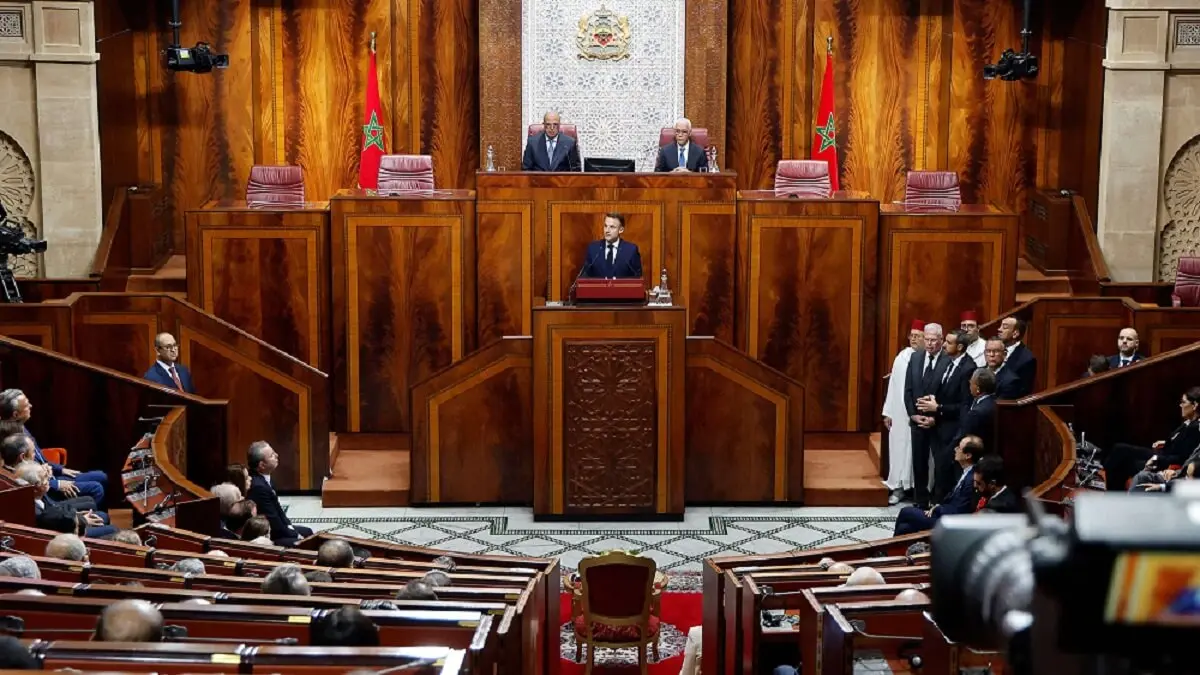
French President Emmanuel Macron delivered a speech to the Moroccan Parliament on the second day of his state visit to Morocco, following an official invitation from King Mohammed VI.
In his emotional speech, Emmanuel Macron reaffirmed France's strong and solid position on Western Sahara in support of Morocco. A decision taken last July that signified the French state's support for Morocco's autonomy plan for Western Sahara.
#ماكرون: أنا والملك #محمد_السادس قررنا صياغة كتاب جديد للعلاقات #المغربية_الفرنسية.
— Leɛyun 🇲🇦 ۞👑 (@5_ersito) October 29, 2024
خطوة نحو شراكة متجددة تقوم على الاحترام المتبادل والرؤية المشتركة لمستقبل أقوى.#المغرب_فرنسا_معا pic.twitter.com/E8OHbFoM0M
The French president once again pointed out to Moroccan parliamentarians that the present and future of Western Sahara fall within the framework of Morocco's sovereignty over the disputed territory, considered by the North African country to be part of its southern provinces. These affirmations were received with profound applause by the parliamentarians and legislators present.
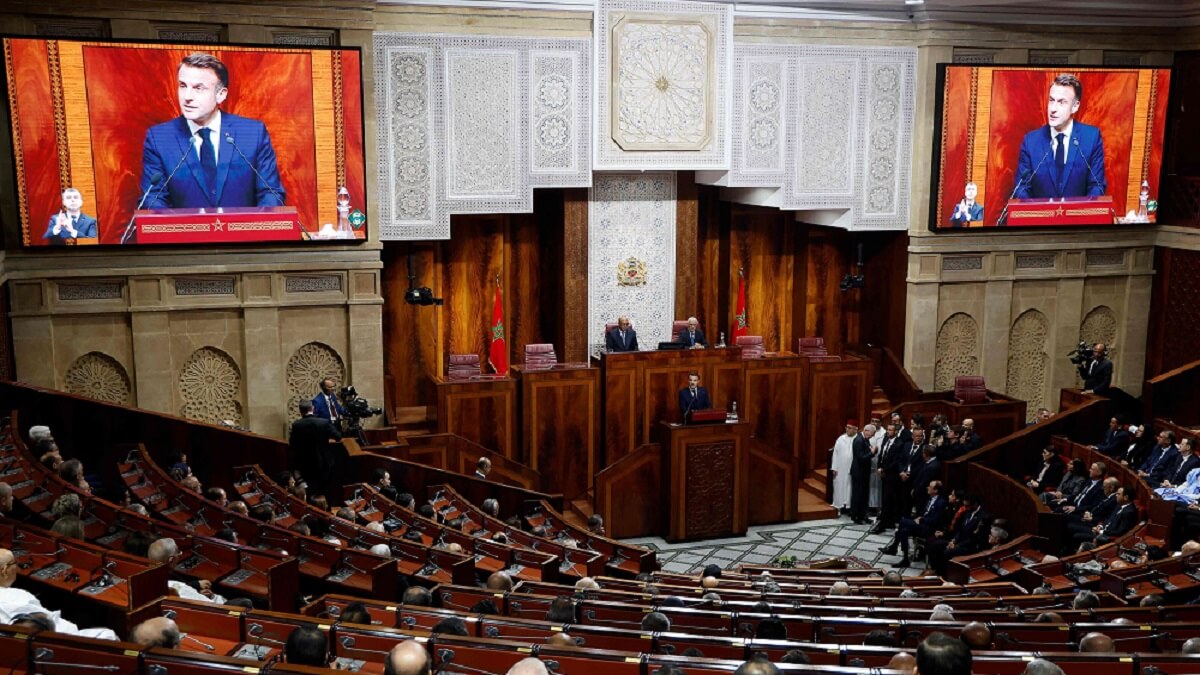
This was a very significant event because France's support for Morocco's position on Western Sahara signifies a new important support from an international power such as the French Republic, which joined other important nations such as the United States, Germany, the United Arab Emirates, Israel and Spain.
Morocco proposes for Western Sahara a formula of broad autonomy under Moroccan sovereignty, respecting the resolutions of the United Nations (UN), which would grant broad self-government to the Saharawi authorities, leaving foreign policy and defence to the Moroccan state, with the aim of developing the area to the maximum. Emmanuel Macron described the proposal as ‘the only basis for a just, lasting and negotiated political solution’.
EN DIRECT | Discours du Président @EmmanuelMacron devant le Parlement du Royaume du Maroc. https://t.co/iYulN56zRC
— Élysée (@Elysee) October 29, 2024
‘This is the position that France will put in place to support Morocco in international forums,’ said Emmanuel Macron, who stressed that France's economic operators and businesses will continue to support the development of Morocco's southern provinces through sustainable investments and initiatives. ‘Our operators and businesses will support the development of these territories through investments, sustainable initiatives and solidarity for the benefit of the local populations,’ he said. Macron also responded to criticism of Morocco by supporters of the Polisario Front, including the Algerian regime, which recalled its ambassador to Paris as soon as France announced its decision to recognise Morocco's sovereignty over Western Sahara.
Emmanuel Macron told parliamentarians that France's position is ‘not hostile towards anyone’, adding that the new French position on the Sahara is historically rooted and respectful of reality.
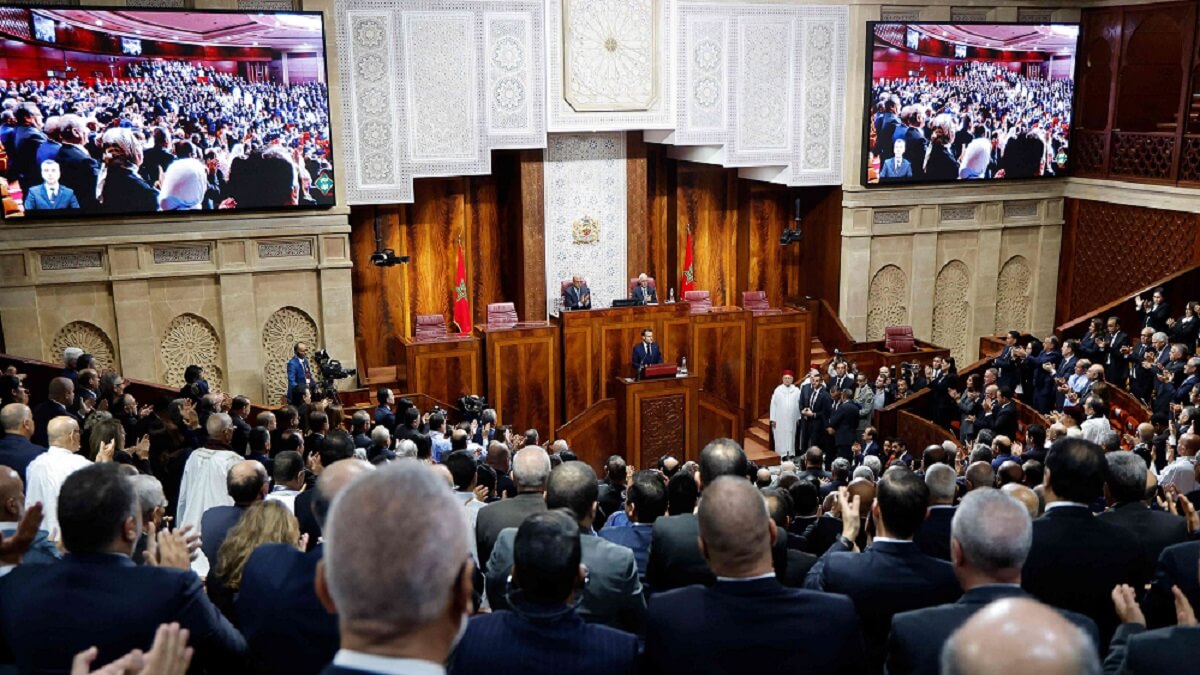
Reference was made to Algerian opposition to Morocco's proposal on Western Sahara. The Algerian state supports the opposing initiative of the Polisario Front, which advocates holding a referendum on independence for the Sahrawi population, which has less support on the international stage and is difficult to implement due to problems such as the drawing up of an electoral roll, as various analysts have pointed out.
Prior to French recognition of the Moroccan proposal for the Sahara as the most serious and credible way to resolve the Saharawi dispute, Franco-Moroccan relations had not been the best. Diplomatic ties had been strained at times, although Emmanuel Macron told the Moroccan parliament that the two nations had remained ‘loyal allies in difficult times’.
‘France has never failed Morocco in all the existential problems it has faced,’ the French president said, adding that the new chapter in relations between Morocco and France carries the possibility of writing a new page for the future and for the development of the African continent.
Emmanuel Macron also highlighted the historical ties that unite France and Morocco, taking into account the important Gallic presence in the North African country since the colonial period. A new stage of deeper cooperation is now opening up, which has crystallised with the signing of various agreements during this state visit. In this regard, Emmanuel Macron stressed that the two countries are determined to deepen their bilateral cooperation at all levels, stressing that they are part of an ‘ambitious Francophonie’.
‘Today there are more than 320 million [French] speakers, and there are expected to be 500 million by 2050,’ Macron explained, showing the deep bond.
‘If we want to meet all the challenges such as competitiveness, energy integration, digitalisation and research capacity, especially in crucial areas such as artificial intelligence, we must invest drastically in training,’ the French president also explained.
EN DIRECT | Discours du Président @EmmanuelMacron devant le Parlement du Royaume du Maroc. https://t.co/iYulN56zRC
— Élysée (@Elysee) October 29, 2024
Relevant state visit
During the first day of Emmanuel Macron's state visit to Rabat at the invitation of King Mohammed VI, Morocco and France signed 22 new agreements, covering multiple sectors, from transport and energy to cultural cooperation.
Already on the second day of the French President's official visit to Morocco, in addition to the speech in Parliament, a series of top-level diplomatic talks took place.
President Emmanuel Macron met at the Royal Guests Palace in Rabat with Aziz Akhannouch, head of the Moroccan government, as well as with the President of the Moroccan House of Representatives, Rachid Talbi Alami, and Mohammed Ould Errachid, President of the Chamber of Councillors.
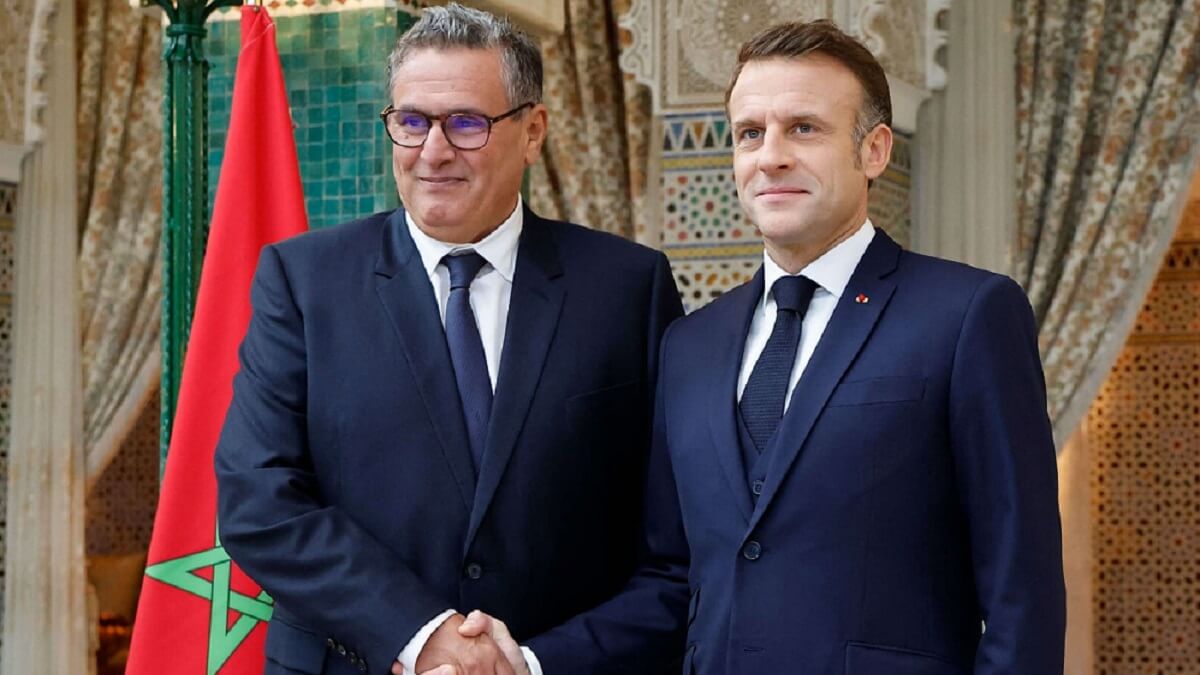
These meetings served to strengthen political ties between France and Morocco, particularly on regional and international issues. They followed King Mohammed VI's invitation to the President of the Republic of France and his wife, Brigitte Macron, for a three-day state visit to the Kingdom of Morocco.
Emmanuel Macron also held a symbolic act of recollection at the Mohammed V Mausoleum, a tribute to the historical roots that unite France and Morocco.
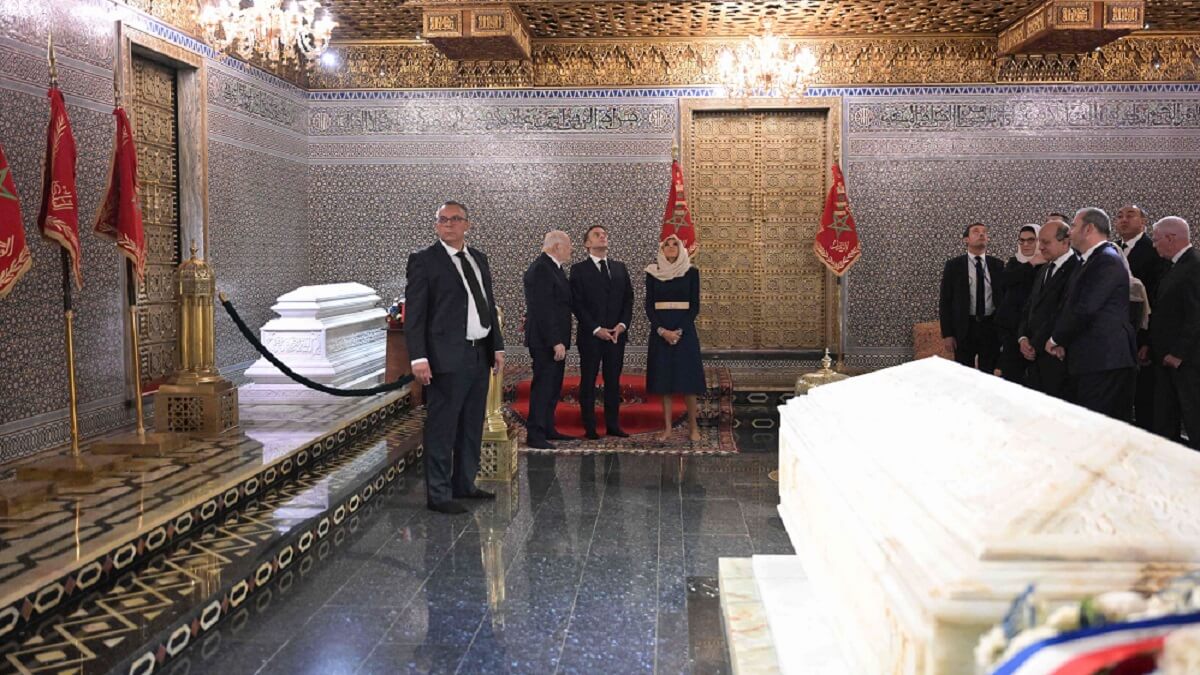
These meetings were followed by the French President's speech to the Moroccan Parliament, highlighting the main challenges of this visit, which focused on strengthening diplomatic ties between France and Morocco and deepening cooperation at all levels, with emphasis on the economic, commercial and cultural spheres.
After this, Emmanuel Macron took part in the closing ceremony of the Morocco-France Business Meetings at the International University of Rabat, a forum focusing on the strategic sectors of the future, such as innovative technologies, renewable energies and industrial decarbonisation.
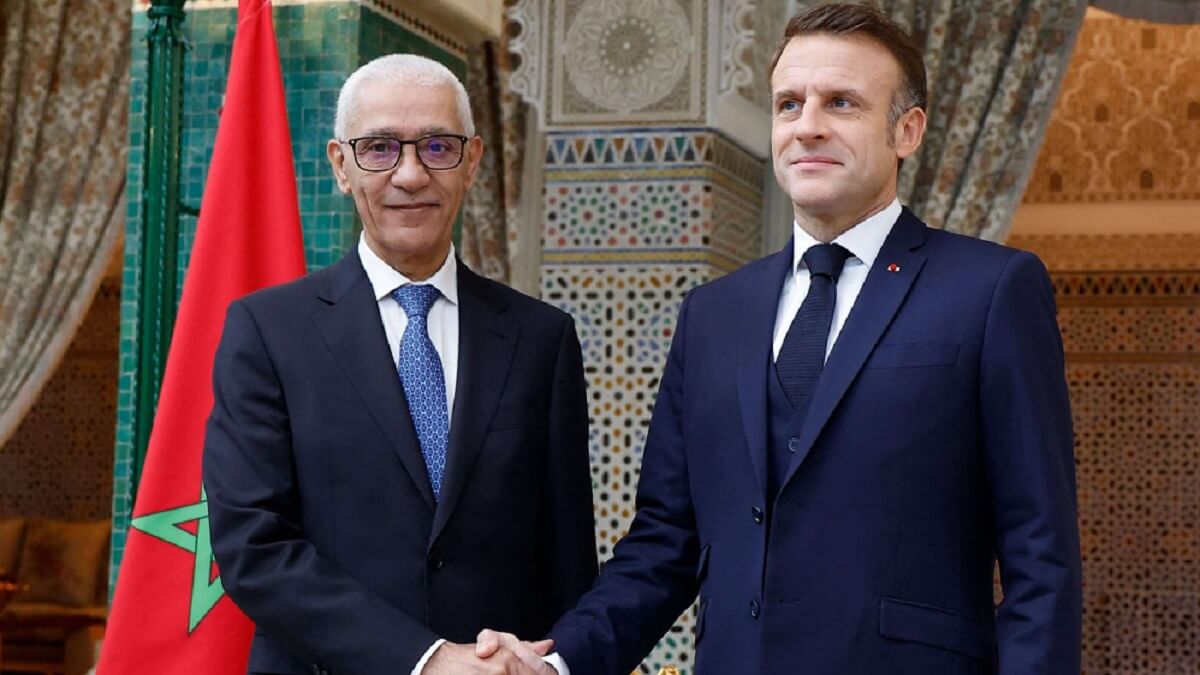
The state visit, the first of its kind in recent years, marked a significant step towards the revitalisation of diplomatic ties between the two nations, boosted by the French state's decision to recognise Morocco's Autonomy Plan for Western Sahara as the most serious and credible option for settling the Sahrawi dispute. This is of vital interest to the North African country because it means defending its territorial integrity, as it considers Western Sahara to be part of its southern provinces.
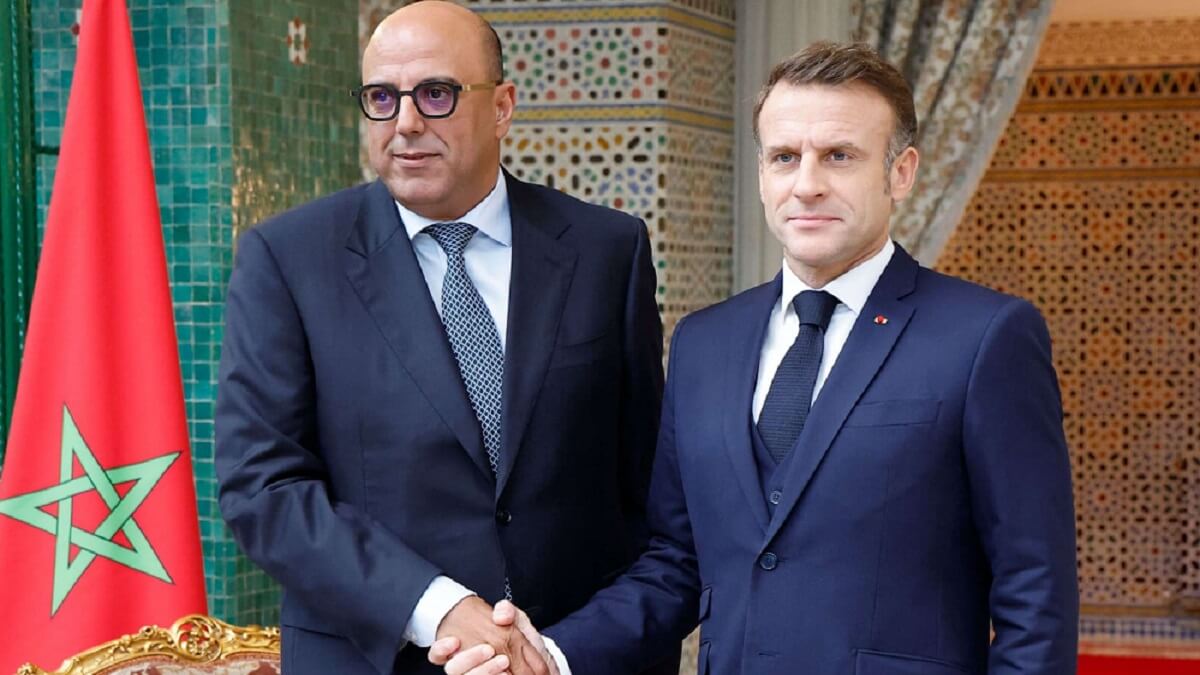
Emmanuel Macron's state visit to Morocco at the invitation of King Mohammed VI led to the signing of several important agreements covering a wide range of areas, including education, energy, water and internal security.








